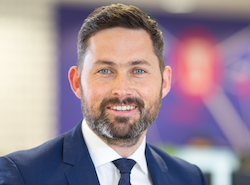A new video-based online learning resource aimed at increasing the effectiveness of cloud sales teams within both the UK channel and vendor community has been launched by the Cloud Industry Forum (CIF).
The new tools have been developed in conjunction with business development consultancy and CIF member Larato.
The new online modules aim to help sales professionals in the channel and vendor communities increase their sales effectiveness by building on existing sales skills with information, tools and processes to enable them to secure sales in next generation information communications technologies and services.
Alex Hilton, CEO of CIF, stated: "The time is right to create an online resource aimed squarely at those individuals who are at the coal face of sales: the channel and vendor sales teams tasked with quotas, win rates and targets.
"This online resource is designed to be simple to follow, easy to understand and for time poor sales teams."
Lucy Green, Managing Director at Larato, added: "We have developed these modules to support the work the Cloud Industry Forum is undertaking. Key to this is helping individuals and organisations throughout the cloud ecosystem understand the sales process, guide them through the sales cycle and give them the tools they need to deliver business opportunities and sales."

 Gamma's Daryl Pile has been promoted to the role of Channel MD following a 13 year stint at the company, the latest phase of a 20 year career working in the comms channel in a variety of senior business development roles.
Gamma's Daryl Pile has been promoted to the role of Channel MD following a 13 year stint at the company, the latest phase of a 20 year career working in the comms channel in a variety of senior business development roles.